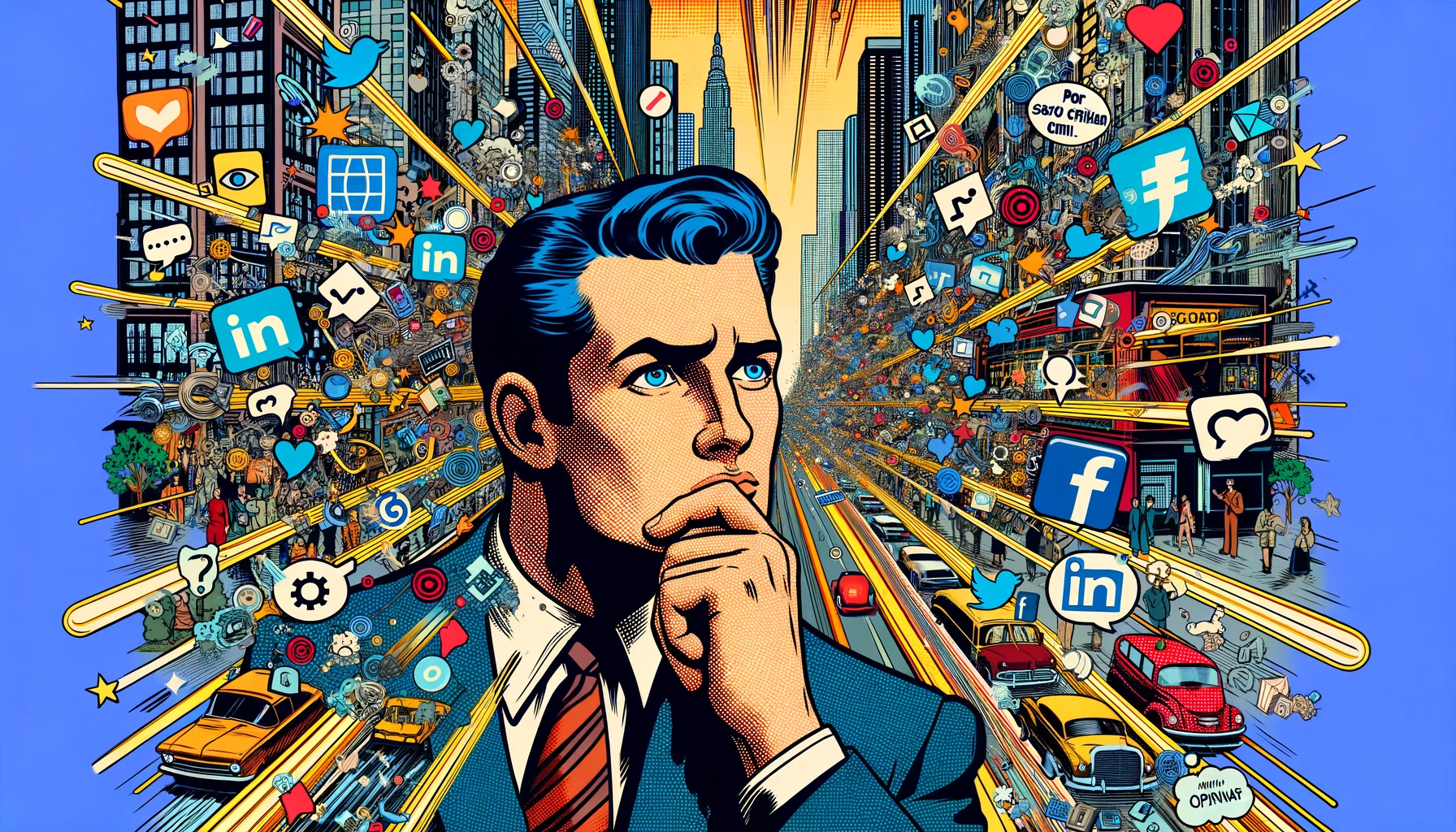In today’s digital age, social networks like LinkedIn have become crucial platforms for sharing ideas, networking, and expressing opinions. As Green Belly, I’m passionate about technology and innovation, and while these platforms offer unparalleled opportunities, I’ve often found myself being highly critical of what I encounter online. This critical approach stems from a deeper understanding of cognitive biases, misinformation, and the importance of discernment in our interconnected world.
The Cognitive Bias Behind Familiarity and Truth
Research shows that if you are repeatedly exposed to a statement, you are more likely to believe it’s true. Take the example of a chicken’s body temperature. Even if the statement isn’t entirely accurate, mere repetition can make us perceive it as truthful. A chicken’s body temperature is approximately 41°C, yet if you hear that it’s 34°C often enough, you’ll start to believe it. This phenomenon highlights a critical aspect of our psychology known as cognitive ease.
Cognitive ease refers to how hard your brain works, ranging from simple tasks like scrolling through Facebook to complex tasks like multiplying 14 by 37 in your head. Familiar, truthful things like “fire burns” or “dogs bark” generate cognitive ease. Not only do they feel familiar, but they also feel right, resulting in a sense of well-being. However, this cognitive ease can be artificially manufactured.
Artificial Cognitive Ease and Its Consequences
In an experiment conducted at two universities in Michigan, nonsensical words like “KARDIRGA” and “BOWONJNI” were published in newspapers with varying frequencies. The words that appeared more often were rated more favorably, demonstrating that with enough repetition, even meaningless words can feel good and familiar. This cognitive ease can be influenced by various factors, including high-contrast images or clear audio, explaining the popularity of filters on social media platforms like Instagram.
The Paradox of Familiarity: The Case of Los Derbez
This phenomenon extends beyond meaningless words to the realm of celebrity culture. Los Derbez from México, for example, is often criticized for being famous for being famous. Yet, they are familiar to us because we have seen their faces repeatedly, creating cognitive ease and a sense of well-being. This is the basis of advertising: repetition makes even unfamiliar or nonsensical things seem appealing.

Why Critical Thinking Matters in the Digital Age
While cognitive ease makes us feel good, it can also be misleading. In text, for example, bold, high-contrast phrases are judged as truer compared to less legible, italicized phrases. This is because bold text is easier to read, resulting in cognitive ease and, thus, perceived truthfulness. Similarly, easier-to-pronounce surnames are more common in high-ranking positions at law firms, and stocks with easier-to-pronounce abbreviations perform better in the market. Cognitive ease not only affects our perceptions but also our behaviors and decisions.
The Need for Analytical Thinking and Skepticism
Despite the comfort of cognitive ease, there are situations where skepticism and analytical thinking are crucial. In a study where logic puzzles were presented in different formats, clearer, more legible puzzles resulted in more errors, while less legible, cursive or handwritten puzzles had a lower error rate. This suggests that cognitive effort leads to better reasoning and problem-solving, which is particularly important in fields like physics, where intuition often fails.
Critical Thinking vs. Cognitive Ease: The Paradox of Learning
Critical thinking requires more mental effort, is more confusing, and doesn’t feel as good as cognitive ease. However, it’s the best way to separate fact from fiction. The paradox of learning is that while cognitive ease feels intuitive and pleasant, it can be deceptive, whereas skepticism and analytical thinking, though harder, are more reliable for discerning truth.
Why I’m Critical Anytime on Social Networks
As someone passionate about technology and innovation, I believe that cognitive ease has its place, allowing us to react intuitively in everyday situations. However, with the ease of sharing and repeating ideas today, it’s important to be more skeptical to distinguish truth from mere repetition. This is why I’m critical anytime on social networks—because, in a world where repeated statements are increasingly perceived as truth, we need to be discerning to separate fact from fiction.
How can we balance the ease of cognitive familiarity with the necessity of critical thinking in our digital world?
I invite you, the readers, to reflect on your own experiences with cognitive ease and critical thinking, particularly on platforms like LinkedIn. Join me on Green Belly, where we delve into the complex interplay between technology, cognition, and perception, exploring how we can navigate this intricate digital landscape with a discerning mind and a critical eye.
Discover more from Green Belly
Subscribe to get the latest posts to your email.




+ There are no comments
Add yours